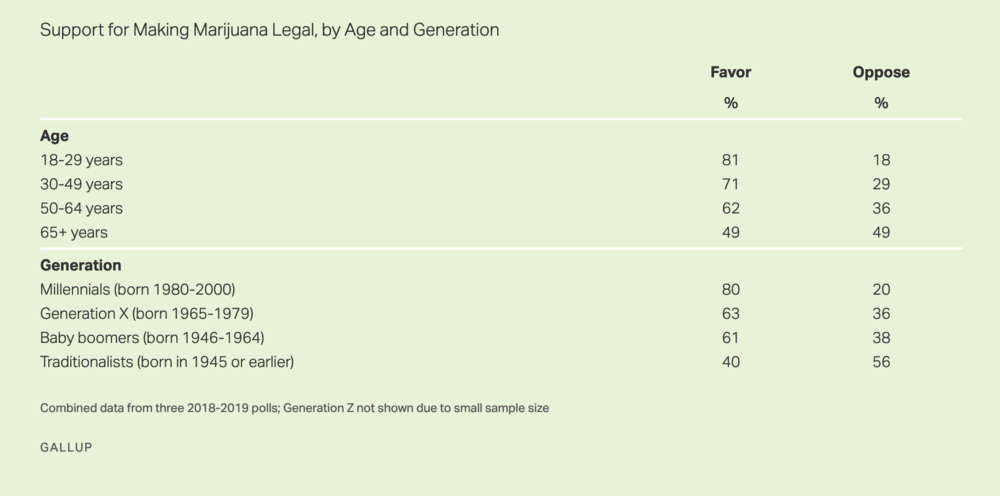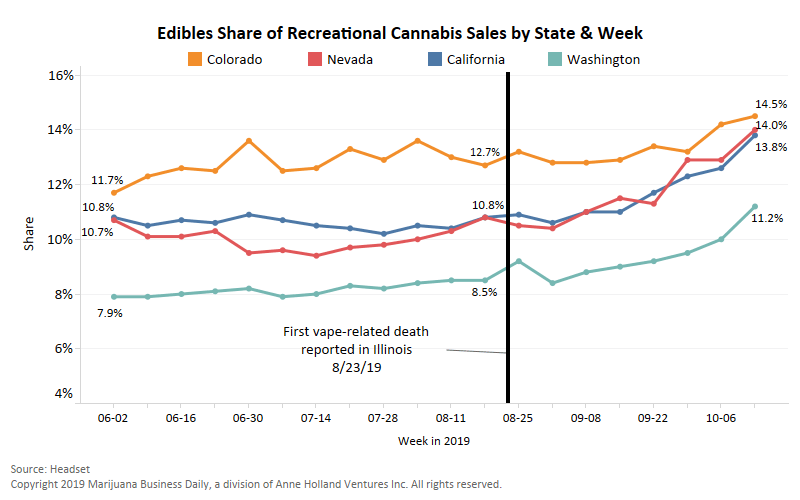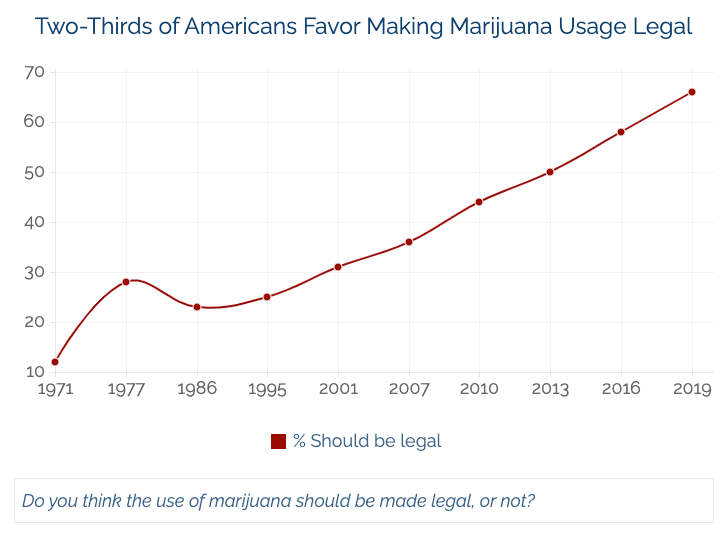North American Cannabis Takeover: Mexican President Pushes Legalization While Gallup Data Shows 66% of Americans Want it Here Too
Legal Marijuana Poised for a North American Takeover
The US could soon be the last bastion of federal marijuana prohibition in North America as Mexico’s new President Andrés Manuel López Obrador continues to advocate for legalization.
Late last year, Obrador’s party—which controls the majority of the Mexican legislature—sent a proposal to the senate that would legalize the cultivation and consumption of cannabis for recreational use.
“Mexico needs to urgently reform the way it deals with the use and consumption of drugs,” Mexican Interior Secretary Olga Sánchez Cordero said in a Mexican Senate forum on cannabis regulation last month. “The prohibitionist policy that’s been followed in the past, without a doubt, has increased violence in our country.”
Producers in Canada, where marijuana is legal for medicinal and recreational uses, are watching the Mexico situation closely and already positioning themselves for a continental takeover.
“In a selfish way, we’re pretty happy that [federal legalization in the US] hasn’t passed, because Canadian companies are setting up all over the world,” said Khurram Malik, CEO of Canadian cannabis producer Biome.
Companies are increasingly looking to joint ventures, acquisitions, and licensing agreements in an effort to position themselves in front of the best financial opportunities, according to Eric Berlin, a leading cannabis law expert
“Folks are absolutely looking globally, and the folks who are knowledgeable about this industry view it as a global play,” he said.
Indeed the US looks like it could become the missing link in a North American cannabis boom. Just ask Chanda Macias, CEO of Women Grow, a for-profit entity that serves as a catalyst for women to influence and succeed in the cannabis industry as the end of marijuana prohibition occurs on a national scale: “[W]hen the time comes, the U.S. will emerge as the biggest provider of cannabis to the world. But it’s just not time yet.”
Newest Gallup Poll Shows 66% of Americans Support Legalization
The latest results of Gallup’s annual Crime survey, conducted Oct. 1-13, show support for legalizing marijuana holding steady at 66% from last year, after rising over 30 percent from 2008 to 2015.
Not only have 66% favored legalizing marijuana in the 2018 and 2019 Crime polls, but also in another Gallup survey conducted in May focused solely on marijuana.
The survey results show interesting trends when broken down by various demographics. Among the findings:
- Politics: Left-leaning Americans are more likely than those on the right to support legalization
- Younger Americans are much more likely than older adults to favor legalization: 80% of millennials, defined as of those born between 1980 and 2000, support it
- African-Americans are more likely to support legalization than whites, who are
- Religions Americans, defined as those who attend religious services on a weekly basis, are the least likely to say marijuana should be made legal, with just 42% in favor. For comparison, Americans who never attend church and those who occasionally do responded 77% and 63% in favor of legalization, respectively.
“Americans have rapidly shifted to backing legal marijuana in the past decade after consistently expressing opposition for 40 years, says Gallup of the results’ key insights. “[G]iven generational differences in support for legalizing marijuana use, it is likely the percentage who endorse making marijuana use legal will continue to expand in the years ahead.”

Edible Sales Up in Four States After Vape Scare
Since the beginning of a health scare related to black market vaporizers and concentrates, sales of THC-infused edible products have climbed steadily in a sign that consumer preferences are flexible when it comes to how they consume their marijuana.
According to recent data, the share of total cannabis sales attributed to edible products increased in at least four states:
- Colorado: 15%, up from 12.7%.
- Nevada: 14.9%, up from 10.9%.
- California: 13.6%, up from 10.9%
- Washington: 10.6%, up from 8.9%

What’s more, the sales of vaporizer products seem to be stabilizing—and in some cases rising—in all states except Washington. Which is a good thing, because health officials in New York and Connecticut have described the black market, not the medical or legal industry, as a “major contributor,” blaming it for “just about all” of their cases of vaping-related illness.
Legalization typically require third-party testing of marijuana products, which create safer, more consistent products and provide consumers visibility into what they’re ingesting, rather than off-the-street black market marijuana products that are often cut or tampered in potentially lethal ways.
Long-Awaited USDA Hemp Rules Less Restrictive than Expected
The United States Department of Agriculture released its proposal for a set of regulations governing industrial hemp cultivation last week, and the rules are less restrictive than some expected. The guidelines were be published in the Federal Register last Thursday and take effect immediately.
By law, cannabis crops must have a THC content of 0.3% or lower, to be considered industrial hemp. Acknowledging the “measurement and uncertainty” inherent in agriculture due in part to unpredictable genetics, the USDA rules proposal gives farmers a 0.2% cushion on the THC content of their crops, meaning only those testing at 0.5% or higher would be treated as non-compliant.
“USDA recognizes that hemp producers may take the necessary steps and precautions to produce hemp … yet still produce plants that exceed the acceptable hemp THC level,” the rules say.
Still, farmers with hemp that tests at 0.3%-0.5% THC “would still need to dispose of the plants,” the agency said.
Along with the rules, the USDA issued a guidance document on testing protocol to further ensure control around the types of test results coming in. Under the new federal crop sampling and testing provisions:
- Crop testing must be carried out in a Drug Enforcement Administration-registered laboratory.
- Sampling of hemp flower material must be conducted within 15 days before anticipated harvest by a USDA-approved sampling agent, which could be a federal, state or local law enforcement agent.
- States may submit alternative sampling and testing protocols for consideration if they may result in comparable or similarly reliable testing results.
These rules, and specifically the THC content allowance, will offer farmers some reassurance they won’t face arbitrary penalties because of a few fractions of a percent.
DISCLAIMERS: This site is not intended to provide any investment, financial, legal, regulatory, accounting, tax or similar advice, and nothing on this site should be construed as a recommendation by Key Investment Partners LLC, its affiliates, or any third party, to acquire or dispose of any investment or security, or to engage in any investment strategy or transaction. An investment in any strategy involves a high degree of risk and there is always the possibility of loss, including the loss of principal. Nothing in this site may be considered as an offer or solicitation to purchase or sell securities or other services.




